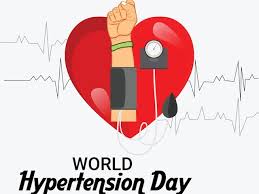As I sat in the doctor’s office, my heart racing with anticipation, the words “You have hypertension” hung in the air like a ticking time bomb, threatening to explode and destroy my life as I knew it. The diagnosis was a wake-up call, a stark reminder that my lifestyle had been a silent assassin, slowly suffocating my vital organs. But in that moment, I knew I had a choice: to let the bomb detonate or to defuse it.
With newfound determination, I embarked on a journey to reclaim my health. I began to exercise regularly, my feet pounding the pavement like a drumbeat of defiance. I transformed my diet, savoring each nutritious bite like a victory cry. And as the days turned into weeks, my blood pressure began to plummet, the ticking of the time bomb growing fainter. I was taking back control, and with each small triumph, my hope grew.

Today, I stand as a testament to the power of resilience, my heart beating stronger than ever. The ticking time bomb has been silenced, replaced by a sense of purpose and passion. I am no longer a slave to hypertension, but a warrior who has emerged victorious. And as I look to the future, I know that every day is a gift, a chance to live, to love, and to inspire others to defuse their own ticking time bombs. The battle may be ongoing, but I am ready, armed with the knowledge that every step forward is a step away from the brink of destruction and towards a life that is truly worth living.
What is Hypertension?
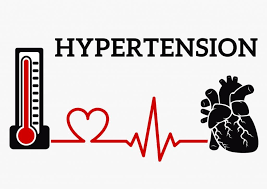
Hypertension: High blood pressure, a condition where the blood pressure in the arteries is elevated, exceeding 140/90 mmHg for adults.
Classification of hypertension:
Normal Blood Pressure
– Systolic: Less than 120 mmHg
– Diastolic: Less than 80 mmHg
Elevated Blood Pressure
– Systolic: 120-129 mmHg
– Diastolic: Less than 80 mmHg
Stage 1 Hypertension
– Systolic: 130-139 mmHg
– Diastolic: 80-89 mmHg
Stage 2 Hypertension
– Systolic: 140 mmHg or higher
– Diastolic: 90 mmHg or higher
Hypertensive Crisis
– Systolic: Higher than 180 mmHg
– Diastolic: Higher than120mmHg
Causes
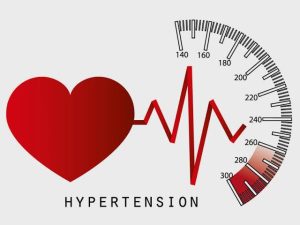
1. Genetics: Family history and genetic factors can play a role in developing high blood pressure.
2. Poor Diet: Consuming excessive sodium, processed foods, and saturated fats can contribute to hypertension.
3. Lack of Exercise: Sedentary lifestyle and physical inactivity can increase the risk of developing high blood pressure.
4. Obesity: Being overweight or obese can lead to hypertension.
5. Smoking: Tobacco use and nicotine can raise blood pressure.
6. Stress: Chronic stress and anxiety can contribute to hypertension.
7. Sleep Apnea: This sleep disorder can increase the risk of developing high blood pressure.
8. Certain Medications: Birth control pills, nonsteroidal anti-inflammatory drugs (NSAIDs), and decongestants can raise blood pressure.
9. Underlying Medical Conditions: Kidney disease, adrenal gland tumors, and thyroid disorders can cause hypertension.
10. Age: Blood pressure tends to increase with age, especially after 65.
11. Race: African Americans are at higher risk of developing hypertension.
12. Alcohol Consumption: Excessive alcohol consumption can raise blood pressure.
13. Lack of Potassium: Low potassium levels can contribute to hypertension.
14. Lack of Calcium and Vitamin D: Deficiencies in these nutrients can increase blood pressure.
Note: Some people may have high blood pressure without any known cause, which is referred to as essential hypertension.
Prevention
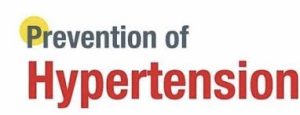
1. Healthy Diet: Eat a balanced diet rich in fruits, vegetables, whole grains, and low-fat dairy products.
2. Exercise Regularly: Engage in moderate-intensity exercises for at least 30 minutes, 5 days a week.
3. Maintain a Healthy Weight: If you’re overweight or obese, lose weight to reduce your risk.
4. Limit Sodium Intake: Consume less than 2,300 milligrams of sodium per day.
5. Increase Potassium Intake: Include potassium-rich foods like bananas, leafy greens, and sweet potatoes in your diet.
6. Reduce Stress: Practice stress-reducing techniques like meditation, yoga, or deep breathing exercises.
7. Get Enough Sleep: Aim for 7-8 hours of sleep per night.
8. Limit Alcohol Consumption: If you choose to drink alcohol, do so in moderation (no more than one drink per day for women and two drinks per day for men).
9. Quit Smoking: Nicotine can raise blood pressure, so quitting smoking is essential.
10. Limit Caffeine Intake: Excessive caffeine consumption can raise blood pressure, so limit it to no more than 200 milligrams per day (about one 12-ounce cup of coffee).
11. Get Regular Check-Ups: Monitor your blood pressure regularly to catch any potential issues early.
Remember, prevention is key! By following these tips, you can reduce your risk of developing hypertension and maintain a healthy blood pressure.
Treatments
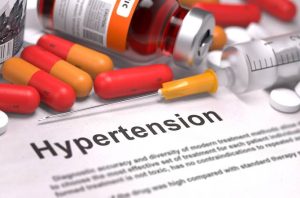
– Diuretics: Diuretics help remove sodium and water from the body.
– Angiotensin-converting enzyme (ACE) inhibitors: ACE inhibitors help relax blood vessels and block the formation of a natural chemical that narrows blood vessels.
– Angiotensin II receptor blockers (ARBs): ARBs also relax blood vessels and block the action of a natural chemical that narrows blood vessels.
– Calcium channel blockers: Calcium channel blockers relax the muscles of the blood vessels and slow the heart rate.
– Alpha blockers: Alpha blockers reduce nerve signals to blood vessels, helping lower the effects of natural chemicals that narrow blood vessels.
– Beta blockers: Beta blockers reduce the workload on the heart and widen the blood vessels, helping the heart beat slower and with less force.
– Aldosterone antagonists: Aldosterone antagonists block the effect of a natural chemical that can lead to salt and fluid buildup in the body.
– Renin inhibitors: Renin inhibitors slow the production of renin, an enzyme produced by the kidneys that increases blood pressure.
– Vasodilators: Vasodilators prevent the muscles in artery walls from tightening, preventing arteries from narrowing.
– Central-acting agents: Central-acting agents prevent the brain from telling the nervous system to increase heart rate and narrow blood vessels.
